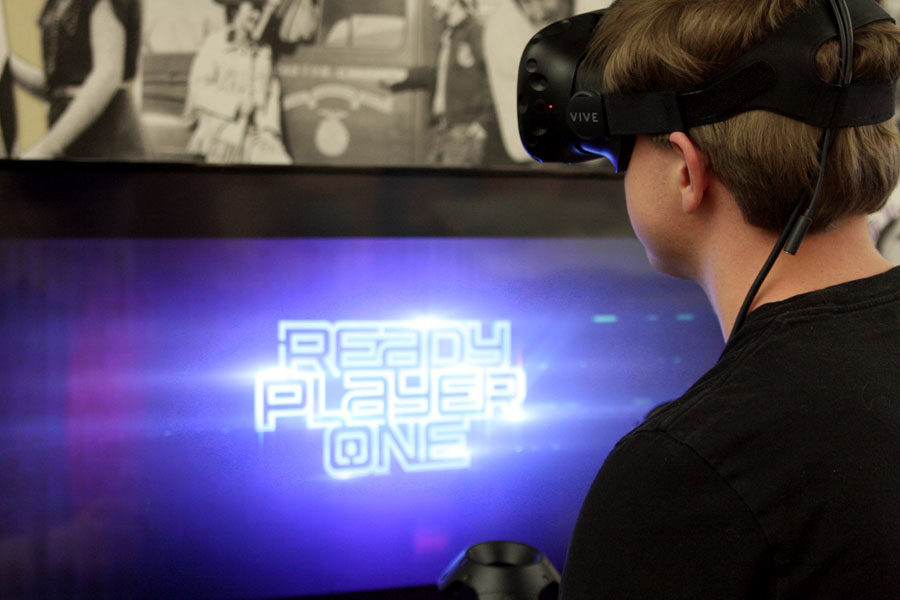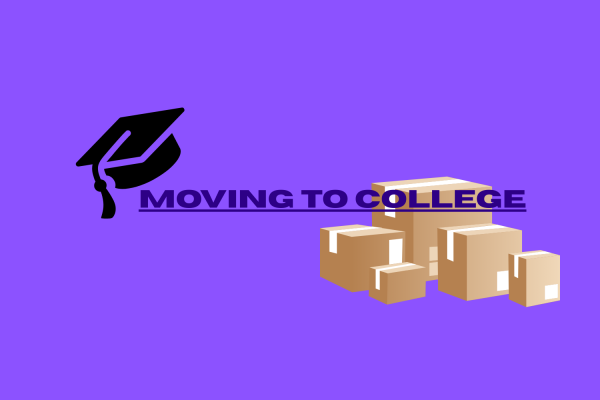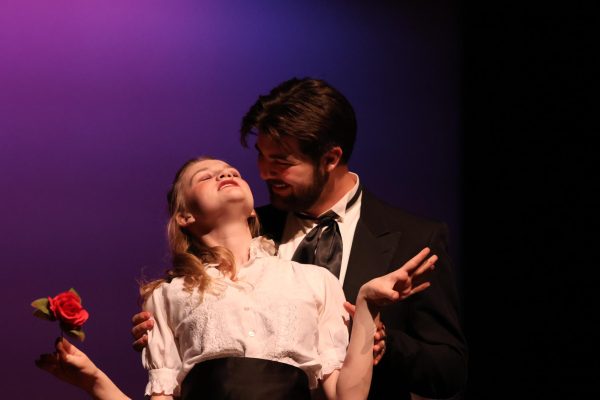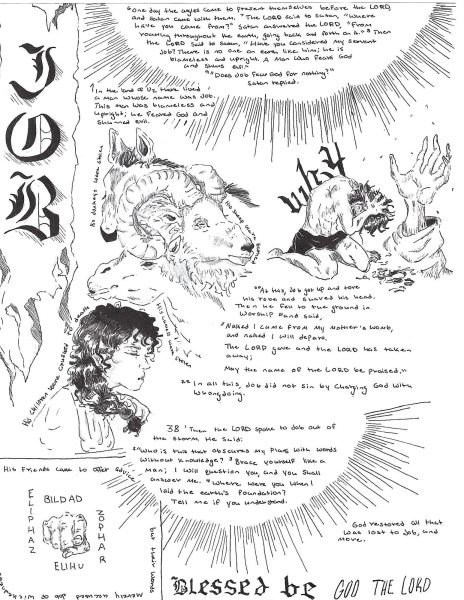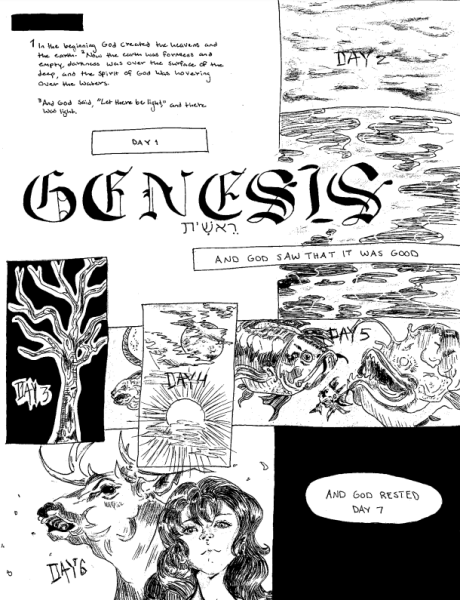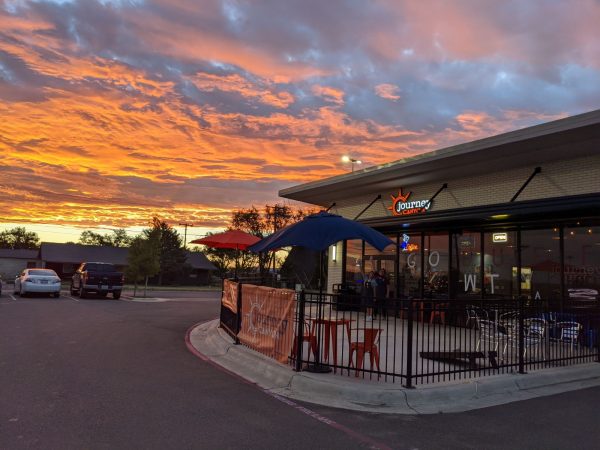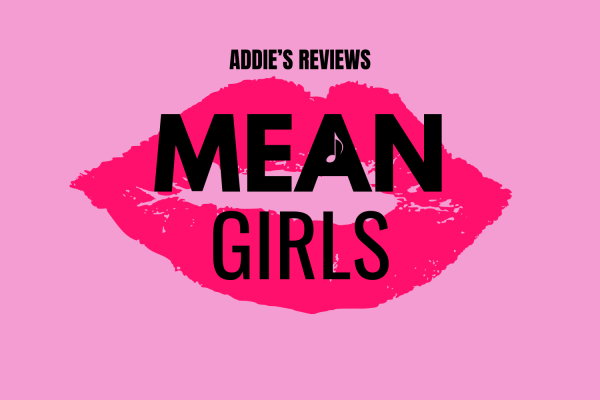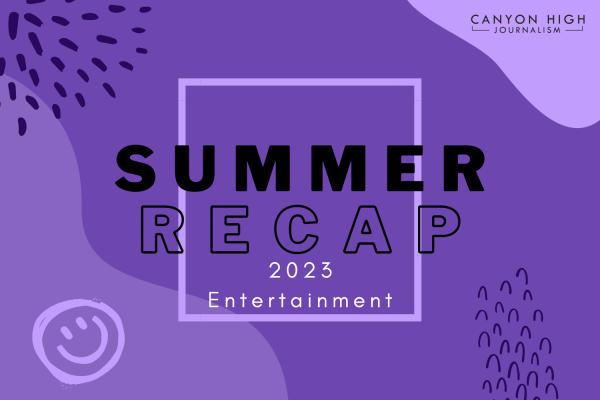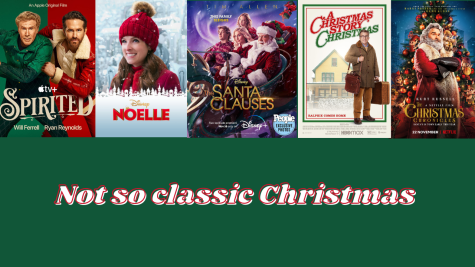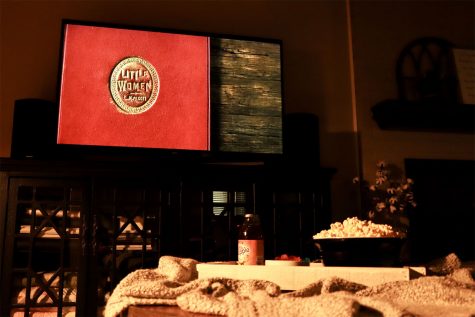‘Ready Player One’ entertaining, but shallow
A student watches “Ready Player One” using virtual reality equipment.
Pretty, but underdeveloped.
Explosive, but inconsistent.
Energetic, but lacking.
Entertaining, but disappointing.
“Ready Player One,” directed by Steven Spielberg, is a fun, upbeat action film, a classic “get the girl” story with a futuristic twist and pop culture references sprinkled in here and there. However, its two hours and 19 minute run time eliminates the meaningful relationships “Ready Player One” held as a book, making it nothing more than an entertaining time waster. Instead of being a film with action and friendship, jokes and love, beautiful animation and beautiful messages, in the end, “Ready Player One” is, for lack of a better term, “meh.”
Its storyline is just complex enough to keep things interesting without confusing viewers. A few years into the future, the world’s people spend time in a complex virtual reality system called the OASIS, designed by a Jobs/Wozniak-reminiscent partnership. The “dork” of the pair, James Halliday, dies and promises his fortune and stock in his company to the first player to find three keys hidden within the OASIS.
After five uneventful years, teen Wade Watts, known as Parzival in-game, collects the first key. Art3mis, the girl he likes, soon follows, along with his best friend, Aech, and Daito and Sho, also friends who work together to solve Halliday’s puzzle. However, the five compete with Innovative Online Industries, a company which threatens the freedom of the OASIS and dedicates its time to capturing Halliday’s fortune first.
The film has an incredible visual appeal. The majority of the film is spent inside an enormous virtual reality video game, and the animation reaches a perfect happy medium–just realistic enough to not distract viewers, but just altered enough to show a clear difference between the OASIS and reality. Since one of the major themes of the film is to appreciate the real world, no matter its ugliness or pain, this distinction contributes to the story massively.
The dimension given to each character is equally appealing. Mark Rylance nailed Halliday’s nervous, introverted demeanor in a performance with both comedy and depth, and his quirkiness and relatability made it easy for audiences to love him. The side characters were also surprisingly developed. Watching the Oology experts reluctantly help Sorrento and later cheer Parzival on was an inside look which made IOI as an organization more likable. A few characters, such as Aech or I-R0K, seem only to exist for mildly amusing comedic relief, but the majority of supporting and main characters are a pleasure to watch.
Unfortunately, the relationships between characters leave much to be desired. The “romance” between Parzival and Art3mis is rushed and hard to follow. Similarly, Aech and Parzival are supposedly best friends, but their visible connection never surpasses the banter of acquaintances. One cannot expect every character in a film to have true, fulfilling connections, but it seemed like the writers were so busy creating dramatic action sequences, every relationship died.
Luckily, these action sequences are very well-written and hold an energy no audience member can ignore. The character development means viewers care about the fates of those onscreen, creating suspense, and the artful animation makes every battle, minor or major, engaging and easy to understand. Director Steven Spielberg successfully balanced light moments, dramatic conversation and action sequences, so no moment in “Ready Player One” is anywhere near boring.
To any audience member who has minimal experience with online relationships, did not read the book or is not passionate about ‘80’s culture, the movie is near flawless. Unfortunately, reading the book and seeing what the film lost in translation ruins the experience.
The changes to plotline are understandable. Although the many alterations create minor plot holes which the book lacked, these holes are not significant enough to distract from the movie’s energy. The worst changes are to the author’s original themes.
As a person with a close online friend, I especially loved the original portrayal of online relationships. In the book, Parzival and Aech are close, very close, and meeting in person is an emotional event, especially when Aech turns out to not be quite who Parzival expects. In the book, after meeting, Wade tells readers, “I understood her, trusted her, and loved her as a dear friend. None of that had changed, or could be changed by anything as inconsequential as her gender, or skin color, or sexual orientation.” A friendship so close between online friends is very rarely portrayed in books or films, and to see Parzival and Aech go from sharing a long-term, unconditional connection to exchanging nothing but casual, meaningless jokes was extremely disappointing.
Another beautiful point in the book was seeing people at the bottom of society rise to the top purely because of hard work. Spielberg successfully portrays this to a degree, but his version holds contradictions. If Wade Watts lives in the futuristic equivalent of a trailer park with absolutely no money, why does he start the movie with high-quality virtual reality equipment and a high level character? Much of the character growth disappears in the film, again losing screentime to action sequences.
Finally, “Ready Player One” lost its chance at becoming relevant to modern issues. Despite the book’s release being earlier than most significant events in the net neutrality debate, a massive corporation threatening to withdraw the freedoms of a virtual reality and clog it with advertisements is frighteningly familiar to Americans after the FCC repealed net neutrality regulations in December. Had the movie emphasized the importance of freedom in the OASIS, any internet user could relate, understanding the similar importance of freedom in the web. Again, the translation to screen cut valuable messages from the book, messages the movie would have been incredible with instead of merely okay.
“Ready Player One” is gorgeous, an entertaining way to pass time and exciting to experience, especially for non-readers. Still, despite its visual appeal and admittedly amusing banter, this film adaptation took a book unlike any other, one with far more than mere entertainment value and cut away what made it so special: its messages. While “Ready Player One” is worth a watch, see it only once; the book deserves more attention.

Hullo! I'm a senior in my third year on staff and my second year as an editor-in-chief. You can catch most of my work in the news and blogs sections. When I'm not around the school with a camera and a press pass, I spend my time in choir, musical, various...

Hi there! I am a senior, and this is my third year on staff and second as editor-in-chief. I am choir president and a member of the varsity and show choirs, and in theater, I participate in musical and the One-Act Play competition. I am a self-proclaimed...

